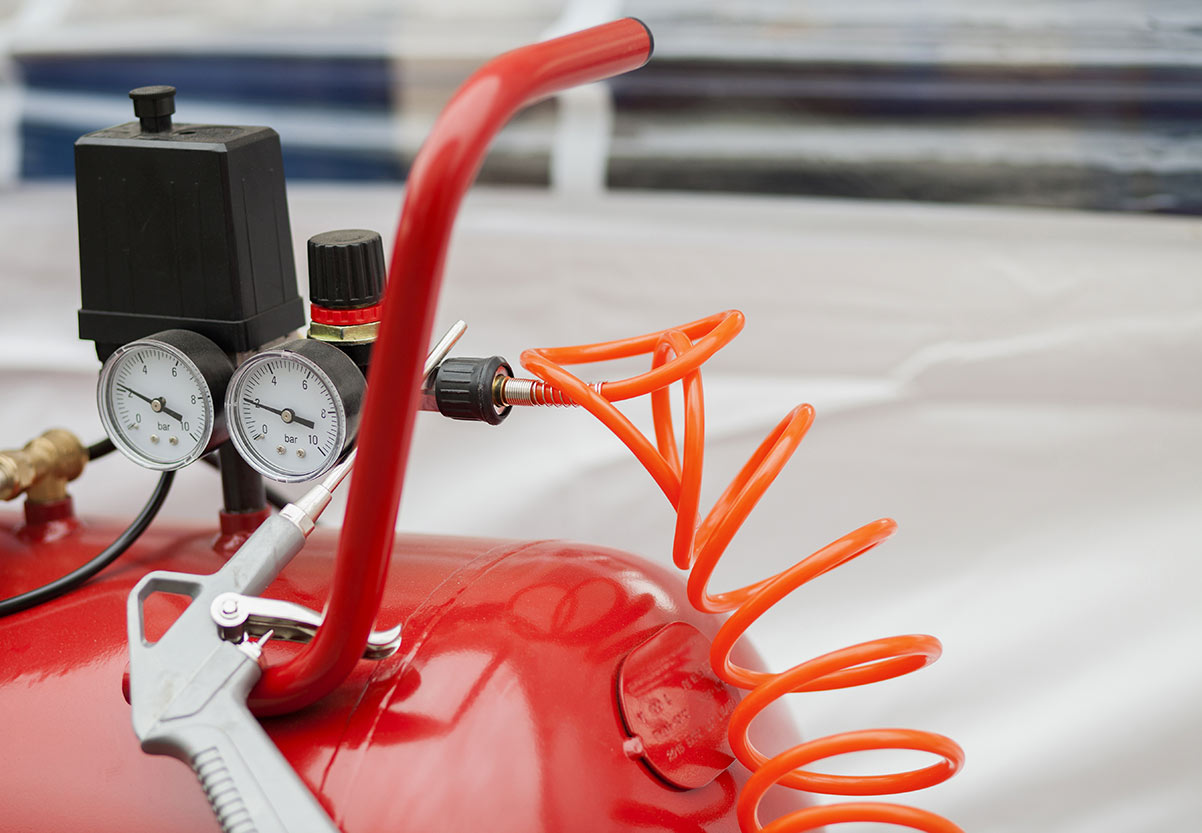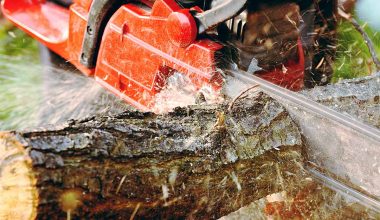Air compressors are an indispensable part of any home garage, but most people think they are much more complex than they actually are. In this article we’ll explain how to use an air compressor safely, and discuss some of the common maintenance tasks you should perform to keep it running well for years to come.
Before you start, you’ll need to perform a couple of basic checks to ensure everything is ready to go. If you have an air compressor that uses oil, you should check the oil level and top it off if necessary. These days, most home garage compressors are actually oil-free, but many large capacity compressors still require oil.
Next, the air release valve should be checked to ensure it’s working correctly. This will be found somewhere on the tank, and it looks like a small valve with a pin protruding and a ring on the end. You should be able to pull it out and in again. This valve allows you to dump the air pressure in the unit in case it malfunctions and builds up too much pressure. Finally, open the tank moisture drain tap to empty out any water in the air tank.
Now you’re ready to go so you can connect the air hose up to the compressor and the tool. The air hose will connect where the regulator is on the compressor, and is normally a female coupling on the unit. Pull back the ring on the air hose and press it into the connector – it should lock into place.
You should check the PSI and SFCM rating for your tool, and make sure that your compressor is capable of supplying the correct air settings. We always think it’s better to start your compressor on the lowest setting, just so there’s no chance of overloading the tool.
Plug the compressor into the AC outlet, and turn it on. You’ll hear the pump run as it pressurizes the tank. After it stops, you should adjust the pressure setting on the panel until the dial show the correct pressure setting for your tool. Now you’re good to go.
Duty Cycle
Heavy duty commercial compressors can run all day long with no fear of overheating. That isn’t always true of smaller units however, which will require some downtime to cool off. The “duty cycle” of the compressor is how this aspect of the compressor is defined – 100% being running continuously, and 50% being it can run for 10 minutes with 10 minutes of break afterward.
You can normally check this setting on the compressor itself or in the manual, and more often than not compressors these days will have an automated cut off.
How To Adjust Air Compressor Regulator
Although it sounds complex, adjusting the compressor regulator is actually very straightforward. When the compressor is running, the regulator is what regulates the pressure to the required PSI. You can adjust it by looking for the knob on the control panel. When the compressor is running, moving this knob will change the reading on the pressure dial.
What Kind Of Oil Goes In An Air Compressor?
Typically, most compressors run off a non-detergent 20 or 30 weight compressor oil. It does differ from machine to machine though, so you should consult the manual for the exact specifications.
Taking Care Of Your Compressor
After running your compressor, you should make sure you drain the tank to relieve pressure and also and water build up. Condensation occurs in the tank, and this can ultimately damage the tank and cause it to fail (dramatically!). Drain the tank using the moisture drain tap mentioned previously.
You should also check the air filter regularly for dirt or any other foreign objects. Clean the filter gently by hand, removing any dirt. If you can’t clean it by hand, it’s probably time for a replacement filter.
Tank Expiration Dates
Unfortunately, air compressor tanks do come with an expiration date for safety reasons. When air is compressed, any water in the air is condensed, and finds its way into the tank. While you can work hard to drain it after use, eventually the moisture can weaken the tank, putting it at risk of exploding. To protect the public, compressor manufacturers put expiry dates on the tanks, and you should not use your compressor if you tank has expired.







1 comment
Thank you for explaining how to use and take care of an air compressor, Tony. It was good to learn that it is important to regularly check the air filter for foreign objects to keep the compressor working properly. I would imagine that hiring a professional for any repairs that your air compressor needs would be better and safer than attempting the repairs yourself.